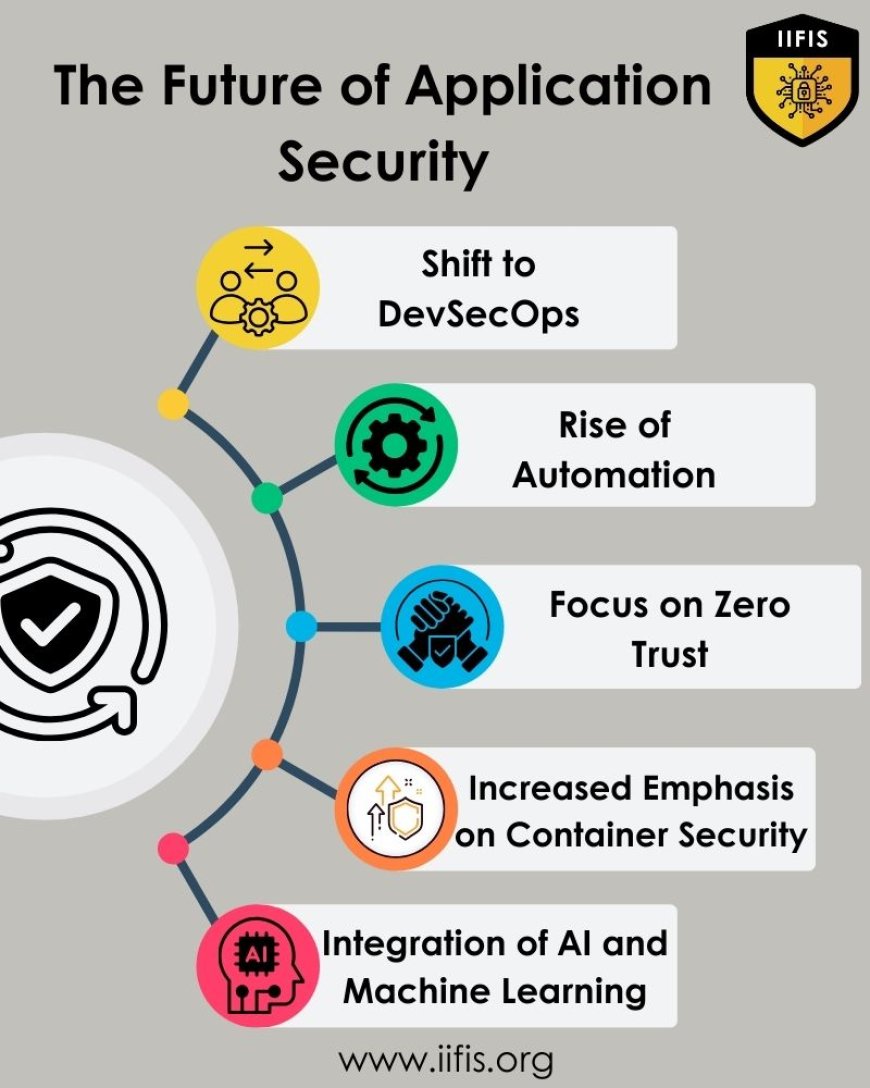The Importance of Application Security Certifications
Discover the significance of application security certifications. Learn how they safeguard your digital assets. Boost your security strategy now.

Application security is an important defense against online attacks. Since increasingly more everyday tasks are being completed online, protecting programs from harmful attacks and illegal access is critical. The evolution of dangers such as phishing and viruses highlights the importance of ongoing awareness and security precautions.
Developers play a role in improving application security because they use safe programming methods and perform frequent testing. The protection barrier is further strengthened by user education and regulatory compliance, providing the credibility and reliability of digital environments. Application security should always come first in this connected world since it's important for maintaining privacy and building confidence.
The Role of Application Security
Protecting Sensitive Data:
-
Protecting sensitive information, such as financial and personal data, as well as intellectual property, is the primary function of application security. It guards against illegal access and data breaches with the help of technologies like encoding, access limits, and data masking.
Mitigating Cyber Threats:
-
Managing cyber threats like malware, phishing, and SQL injection—which take advantage of application vulnerabilities—needs application security. The danger of harm and improper use is reduced via vulnerability detection, patching, security controls, and routine testing.
Maintaining Trust and Reputation:
-
In the information society of today, trust is a must for businesses. Financial losses and reputational harm are possible outcomes of security breaches. By providing data availability, confidentiality, and integrity, application security upholds confidence. Making security a top priority shows a commitment to protecting client data and maintaining confidence.
Ensuring Regulatory Compliance:
-
Application security provides conformity to privacy laws such as GDPR, HIPAA, and PCI DSS. Organizations can avoid fines and uphold industry standards by coordinating security measures with legal responsibilities.
Supporting Business Continuity:
-
Application security lessens service disruptions, downtime, and data loss to enable business continuity. Organizations guarantee that vital operations continue unhindered in the face of cyber-attacks by mitigating vulnerability.
What Are Application Security Certifications?
A certification in application security is given to people who have proven they are skilled at protecting software applications from online attacks. These credentials attest to the expertise needed to identify issues, put preventative measures in place, and successfully minimize risks.
-
Enhancing Professional Credibility: Getting certified in application security increases one's professional credibility and leads to new job chances. Professionals with certifications who can guarantee the security of their applications are highly valued by employers, which boosts employment opportunities and income possibilities.
-
Staying Updated with Industry Standards: Obtaining certifications frequently necessitates keeping up with developing dangers, best practices, and industry standards. Through this ongoing learning process, certified personnel are guaranteed to have the most up-to-date knowledge and abilities to handle changing security challenges.
-
Meeting Compliance Requirements: Strong legal demands exist for several businesses about application security and sensitive data protection. Possessing the necessary certificates proves compliance with these rules, giving clients and stakeholders peace of mind.
-
Building Trust with Clients and Users: A person's commitment to preserving the security and integrity of applications is shown by their certifications. This strengthens the credibility and reputation of companies that use qualified specialists by fostering confidence among stakeholders, users, and clients.
-
Fostering a Culture of Security: Organizations promote a culture of security awareness and responsibility by requesting staff members to obtain application security certifications. By sharing their expertise with peers, certified experts can improve the organization's overall cybersecurity processes.
The Future of Application Security
-
Shift to DevSecOps:
DevSecOps, or the process of integrating security into DevOps, is one popular trend. Throughout the software development lifecycle, this method places an important value on cooperation between the operations, security, and development departments. Organizations can create apps that are more secure right from the start by integrating security processes and tools into every phase of development.
-
Rise of Automation:
Automation will become increasingly important to application security. The increasing intricacy of applications coupled with the constantly evolving danger environment makes manual security procedures increasingly impractical. The increasing use of automated technologies for code scanning, vulnerability identification, and threat response will help businesses detect and resolve security issues more quickly.
-
Focus on Zero Trust:
Application security will see a rise in the use of the zero-trust security concept, which holds that no entity—internal or external to the network—should be trusted by default. This method places an important focus on thorough verification of each user and device accessing the application, continuous authentication, and granular access controls. Organizations may reduce the risk of information theft and illegal access by implementing a Zero Trust mentality.

- Increased Emphasis on Container Security:
Protecting containerized apps will become a major challenge as microservices design and containerization continue to gain popularity. The specific difficulties presented by dynamic, transient container environments—such as image vulnerabilities, runtime protection, and orchestration security—will be addressed by evolving container security solutions.
-
Integration of AI and Machine Learning:
Application security will see a growing impact from machine learning (ML) and artificial intelligence (AI). Large data sets can be analyzed by these technologies to find trends and abnormalities that point to potential security risks. Tools with AI capabilities can improve incident response, strengthen the identification of risks, and strengthen overall security position.
A move toward DevSecOps, a rise in automation, the implementation of Zero Trust principles, a concentration on container security, and the fusion of artificial intelligence and machine learning will define the future of application security. Organizations may better safeguard their data and applications in an ever-changing security environment by keeping up with current trends and adopting new technologies and practices.
Application security is critical to preserving confidence in an online setting and protecting digital assets. Its job involves essential facets of contemporary corporate operations, ranging from safeguarding confidential information to reducing cyber risks and maintaining adherence to regulations. Certifications in application security improve professional credibility and make it simpler to adhere to changing industry norms. Organizations are better defended against new threats when they adopt trends like automation, DevSecOps, and Zero Trust principles. In the future, maintaining corporate integrity in an increasingly digital world and managing the evolving environment of threats will need a proactive approach to application security.























